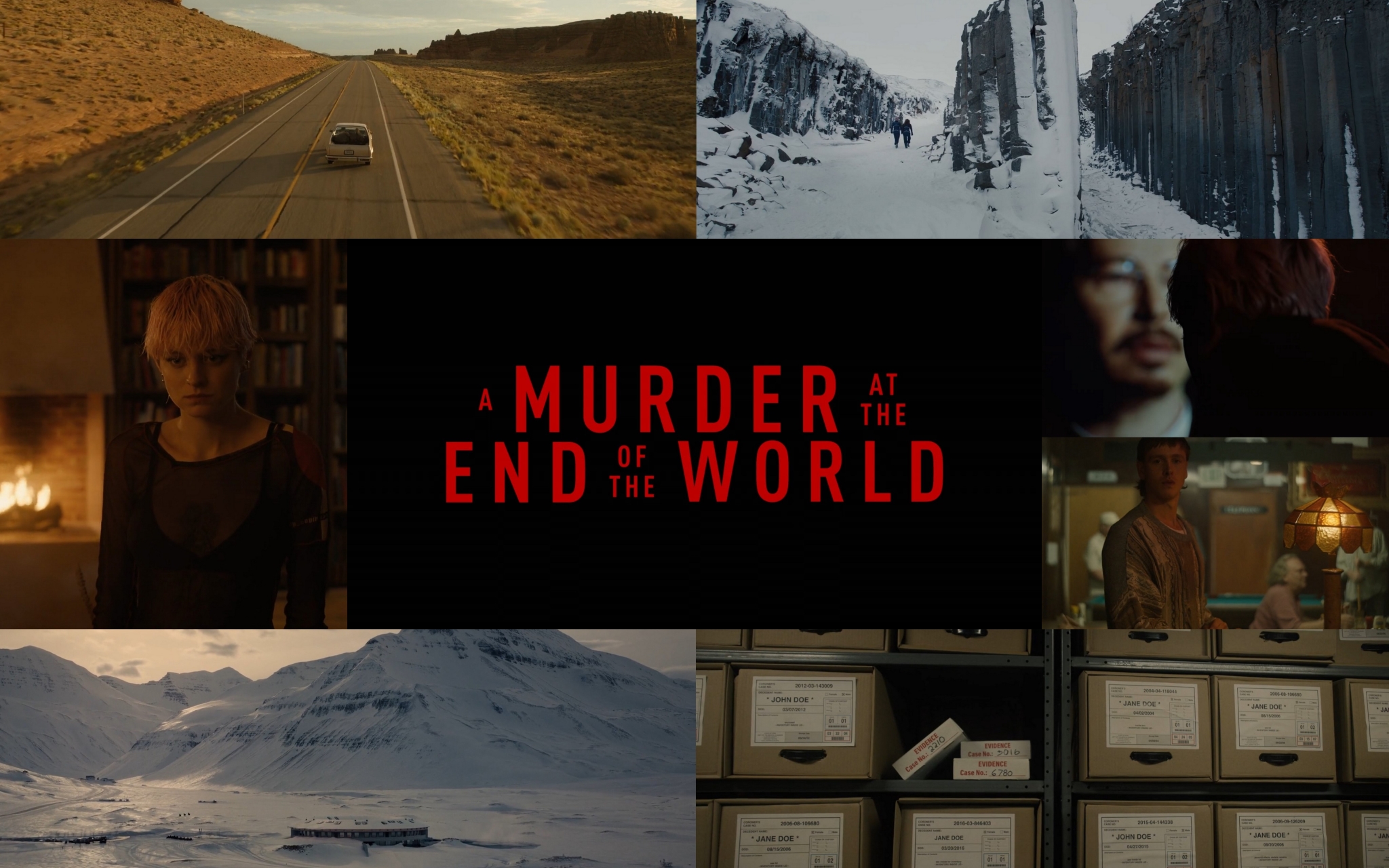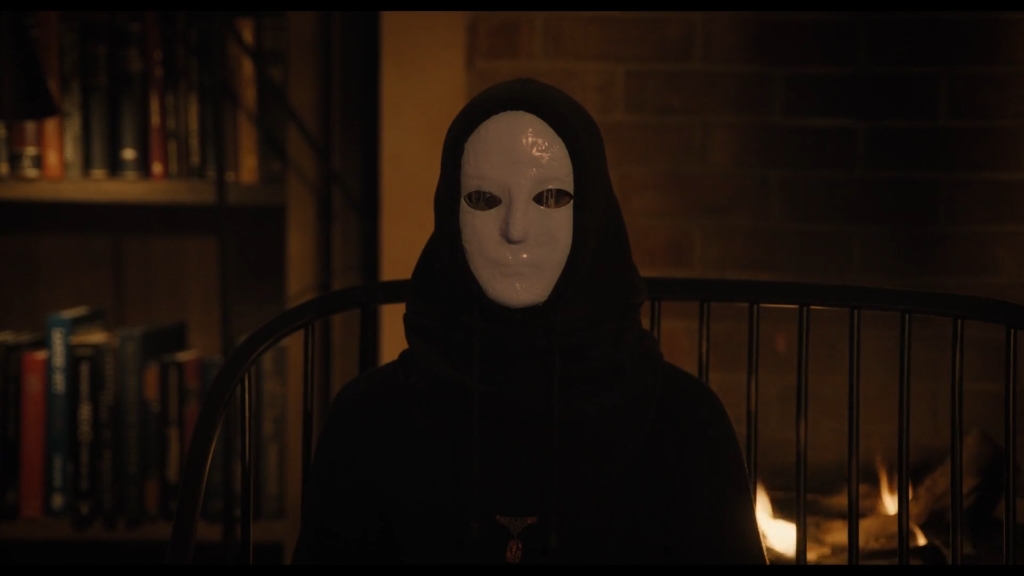Singularly Felt but Universally Relatable

A take-it-all-in hacktivist mystery. No spacetime for blink-and-you-miss-it shenanigans. Mild spoilers for A Murder at the End of the World below.
Imagine yourself an adolescent with no knowledge of British idioms, culture, reference points – British life, in general. Now imagine picking up a random Agatha Christie novel and reading the first couple of chapters. Would you latch onto it? Would its unapologetically English characters, class tropes, and personification of European vignettes resonate? Christie was my introduction to murder mysteries. As a high schooler, I must have read most of her catalogue. At times, the prose and characters were difficult to get a grip on, but worth grappling with regardless. The twists and turns so worth it.
Christie knew how to construct a setting, place characters in context, prescribe them motivations, interests, and suspicions, and lead the reader down several rabbit holes of possibilities. It did not matter if the cultural touchpoints were not always obvious or easily understood, at least to this reader unfamiliar with the world of twentieth century Britain at that time. The author was doing enough to keep you engaged and develop the people you were following. The strangeness of the stage provided plenty of intrigue.
Sometimes, she cheated. A clue left unshared or a spurious revelation plucked from speculation that could not possibly be confirmed until the author was ready for us to hear it. And Then There Were None was guilty of this; The Murder of Roger Ackroyd the exact opposite.
Not every mystery writer sprinkles their literature with puzzle pieces to the full picture. Nor do they need to. It may be fun to go through a Sherlock Holmes story with the aplomb and brilliance of the eponymous detective, but alas, that is not easy given the number of red herrings overlaid within the narrative. When entering the world of a murder mystery, we are also conditioned to be suspicious of everyone and ascribe intention or ulterior motives to every little action. We cannot let anything go. It is as much a game to play as it is a story to absorb. Pleasantly surprising, then, when we happen upon a thriller or murder mystery having gone in blind – now we have to re-read or re-watch it at some point; what clues did we miss along the way?
This brings us to FX’s A Murder at the End of the World, created by Brit Marling and Zal Batmanglij. With “a murder” in the name, the only surprises ahead are the ones you are expecting. It is a whodunit that primes the viewer to be doubtful of everyone and everything. Except this one actually plays nicely on the trope of revealing a grand master plan, instead dwelling on the evolving mess at hand.
We follow a magnetic protagonist, a young woman and amateur sleuth, who has plenty of foibles – those pesky obsessions that intrude further over time. The surrounding cast, picked from the elite, mirror a Christie setup in so many ways. They are dissimilar in their backgrounds but have connections that places them in the protected classes: wealth, associations, drive, passion, and a penchant for the theatrical. After all, class is also a performance, and Iceland is a fitting stage for this production.
 Credit: Mysterium Valley / FXP
Credit: Mysterium Valley / FXP
The theatrics are a standout here. A Murder feels just as grounded as the best of the contributions to the genre, in literature or film, but it also effectively manages the serious with the silly. A procedural set in one location and with a core group of characters that nonetheless expands its scope beyond the rudimentary cycles of a paint-by-numbers mystery. It delves into stereotypical (albeit not overdone) hacker tropes, explores one of the better depictions of Artificial Intelligence in recent memory, has plenty of social commentary on generational, gender, and class divides, and still has space for exploring grief.
On an initial watch, this show was an entertaining and decently paced murder mystery. But on a second viewing, I found the placement of the regular flashbacks and their role in fleshing out the story to be adeptly constructed. This show was also, and I would argue mainly, about an individual’s processing of pain and loss. The drives through hot deserts contrasted with hikes through icy cliffs, the constant running through a circular hotel (trapped in an uncomfortable loop), the switches from expansive settings to intimate conversations – all to build a portrait of sorrow singularly felt but universally relatable.
Darby: Did you see his face?
Bill: No. No I didn’t.
Darby: Neither did I… I wonder what was in his eyes. Whether he knew he was gonna do it or, if he was still deciding.
Bill: I don’t think it matters.
Darby: Yeah… He must have been on that sub-reddit, following us for a while. Getting high off the work we were doing. So I guess, in a way, it’s like we were appreciating what he’d done—
Bill: I wasn’t appreciating him.
Darby: You know what I mean though. Like, we were doing all this work to try and figure out—
Bill: Wait, what are you talking about? He had a gun. He was about to shoot us. I, I thought we were gonna die.
Darby: We didn’t die. We didn’t. He did. Because he couldn’t face—
Bill: Who cares about him!? He’s nothing! He’s the result of faulty programming. He’s the, the, the juice concentrate of a system that needs to be fed dead bodies in order to survive. He’s boring and predictable like the most basic code cycling over and over again until all the women are destroyed and the world just burns…
Darby: What are you, what are you saying?
Bill: I’m saying you want the killer to have meaning and he doesn’t have meaning. He’s just a killer! I don’t… I don’t know Darby, I just, I’m trying to process this, and, and like, tell you how I feel and you’re on the case? I want to know how you feel!
It is quite an extraordinary feat to use the chasing of a serial killer in one timeframe and the solving of a murder in another, through the lens of a marginalized and systemically questioned voice, to break down compounding impacts of trauma. The best moments are always found upon re-watching, when the plot is no longer uncertain and the unknown cannot be used to hide deficiencies in storytelling. The most compelling and carefully written bits of A Murder have nothing to do with the icy retreat or the specter of a villain. They are the beautifully structured testaments shared by each character on the journey – the lady who escaped the claws of a killer reflecting on the encounter as she watches her children play; the online acquaintance who expels relief when she finally gains closure; the confessions of vulnerability and proclamations of principle between the two leads; a bonfire chat and ceremony to release spirits to the peaceful dance of the aurora borealis.
Each character has run into their own world’s end long before they encountered this one.
The show is a confidently executed vision of a world mirroring the now with a few light touches like only the best sci-fi can manage. It gives equal weight to its story and its presentation. Those who have read Ted Chiang’s Story of Your Life and watched its adaptation to the screen, Denis Villeneuve’s Arrival, can likely understand. Each a presentation of the same story, but each quite different in what it emphasizes and how. Both lessons on how best to play to the strengths of a medium. By warping the text or adjusting audiovisual cues to reveal to the reader or watcher the truth – in a way that echoes the underlying linguistic theory at the heart of the narrative – the retellings expertly highlight the value of each artistic endeavor. A Murder is similarly related to Christie’s best tapestries, skillfully guiding us along a mystery, but going further by weaving into its threads layers of social discourse.
I have been following Brit Marling’s career for a while. She has been behind some of the more interesting recent comments on crises of faith and obsession in their many forms. A Murder is a continuation of many recurring themes in her work. Strangely, the show has several interesting ties to Sound of My Voice which may be worth exploring at a later date. (Also a recommendation, if you find films about cults, faith, and psychological drama absorbing.) Largely, though, it was nice to finally see a smart mystery plot that used the framing of the old-school whodunits to examine anxieties around modern technology and globalized issues.
A show that offers just as much on the macro scales as it does in the little details. My word of advice – do not bother solving the mystery. Take in the settings, listen for the hidden wisdom deftly sprinkled into the dialogue, and sink into an empathetic state. The ‘end of the world’ a forever-metaphor adaptable to many a context.